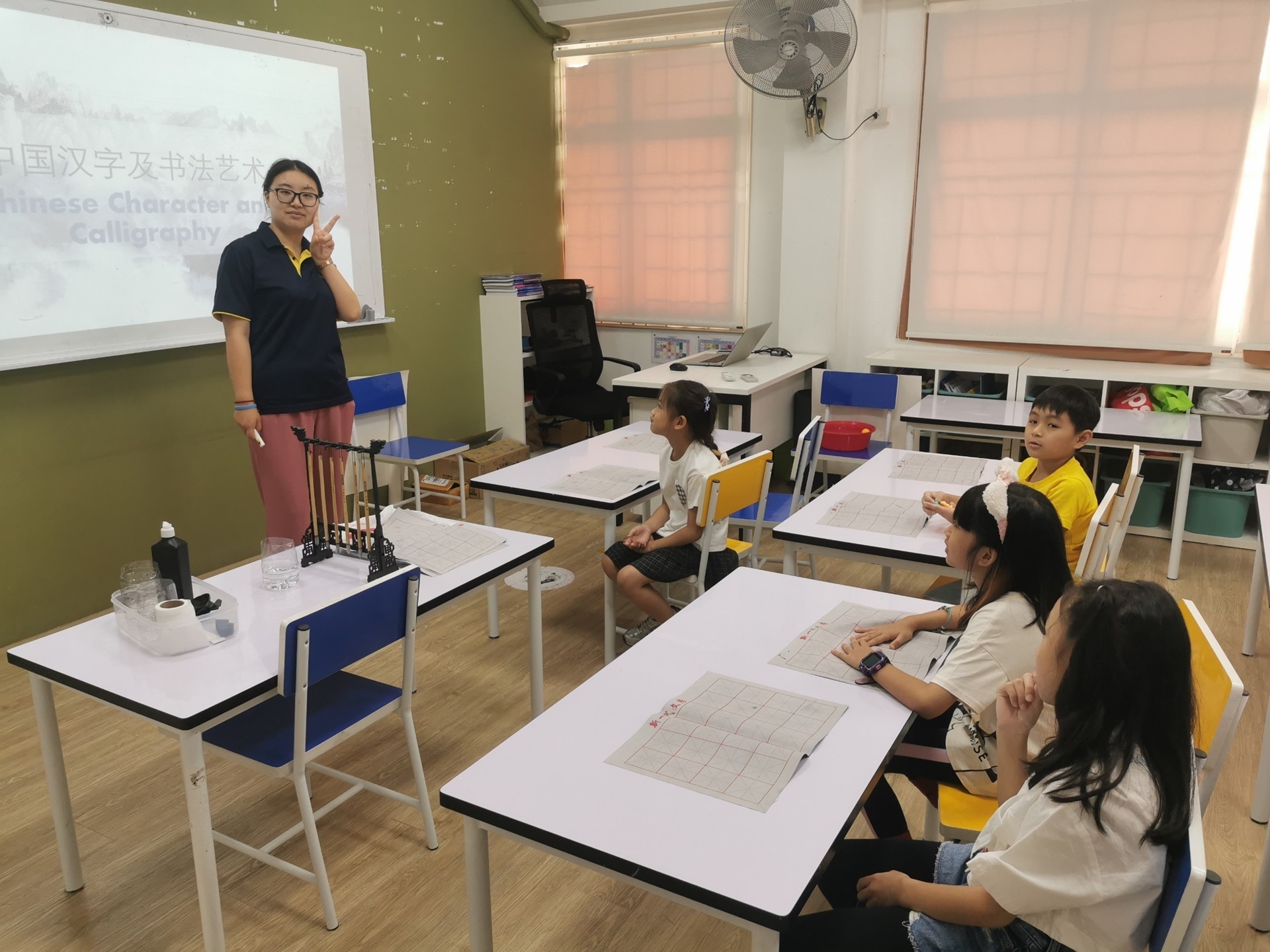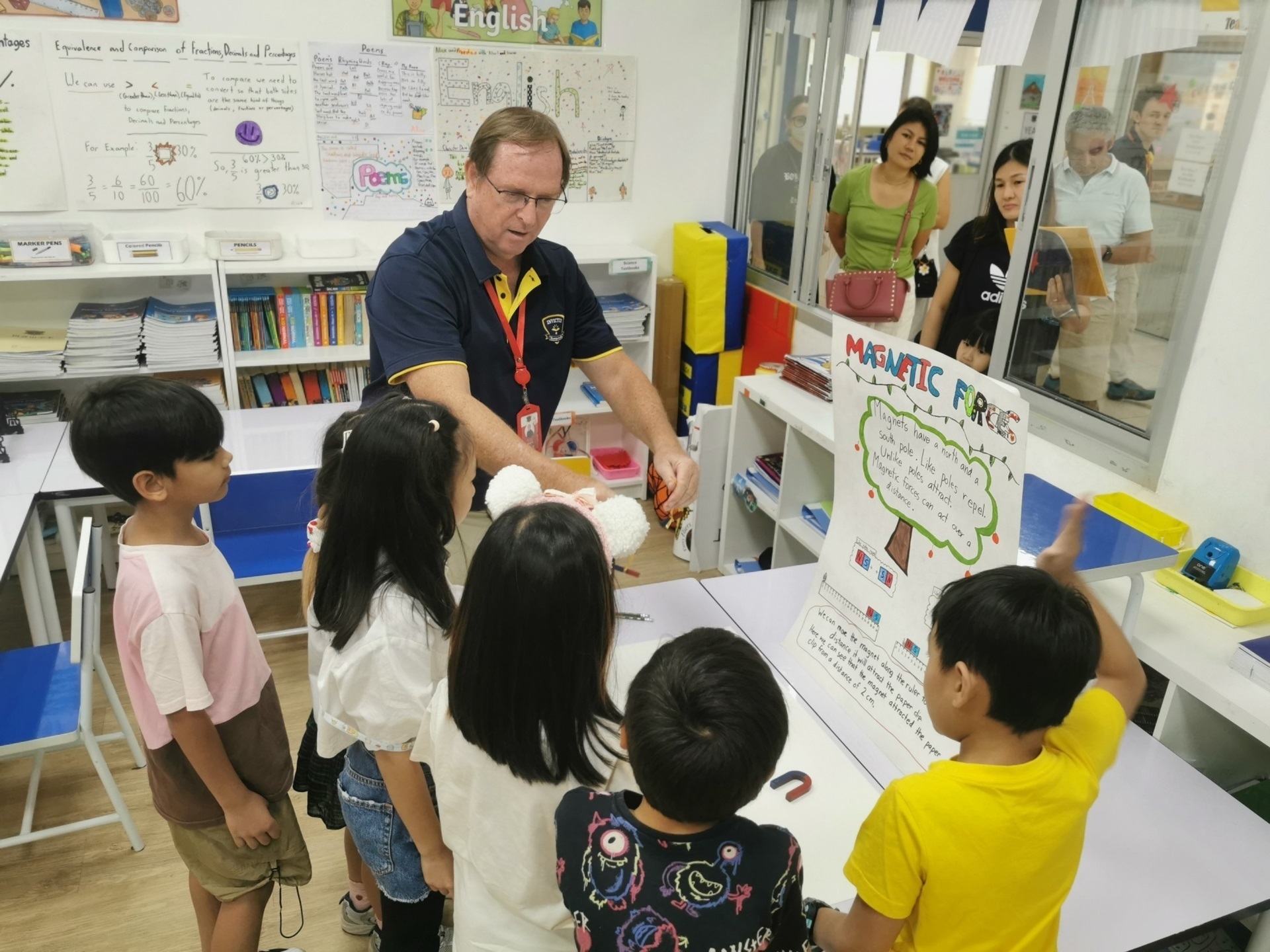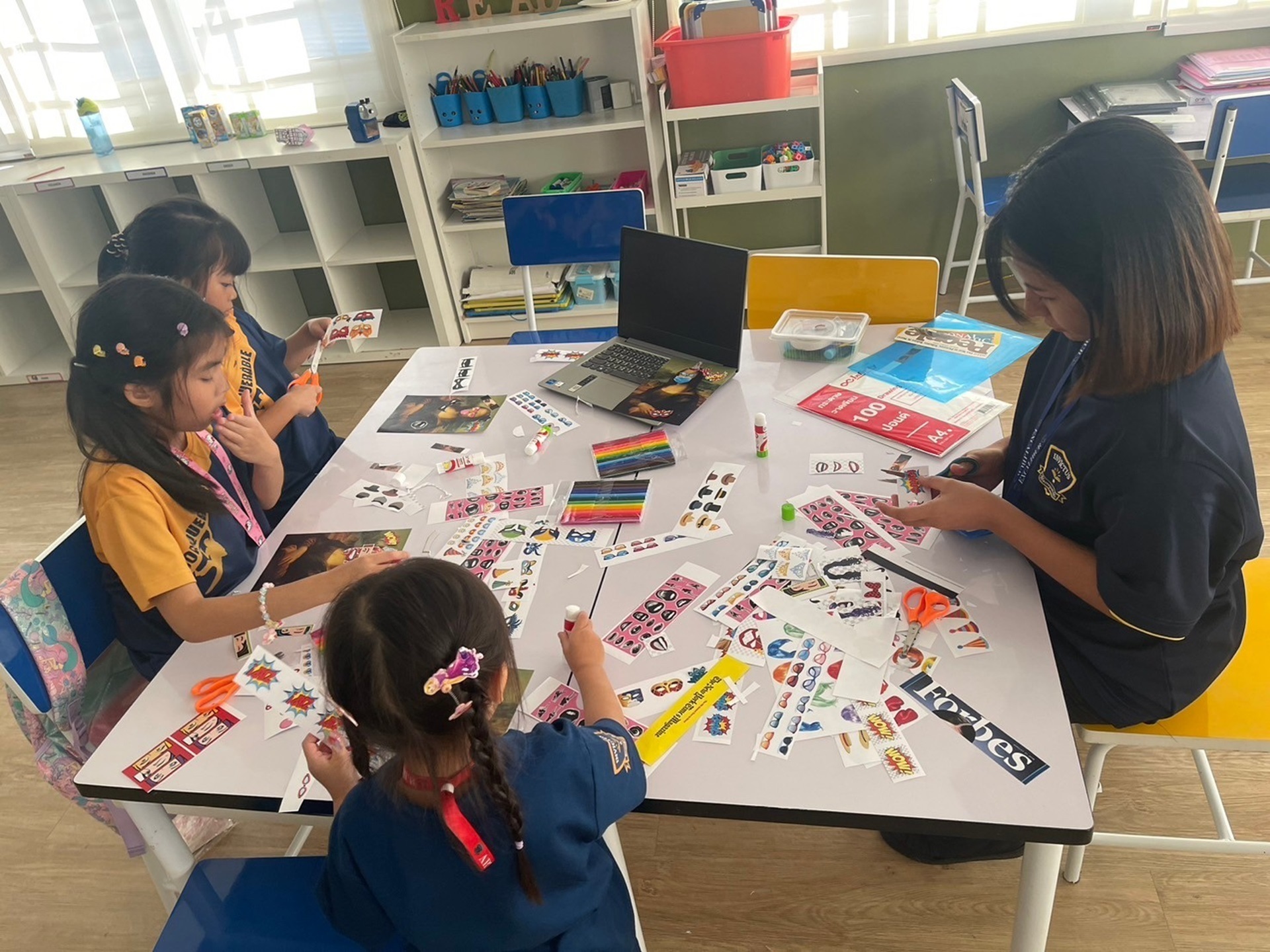Academic Staff
The Importance of Learning Responsibilities
Teaching children about responsibility is an essential part of their growth and development. Responsibility means doing the things you are expected to do and accepting the outcomes of your actions. When kids learn to be responsible, they understand the importance of completing tasks, taking care of things, and keeping promises. These are important skills that will help them in all areas of life.
Children start learning responsibility at a young age. Simple tasks like picking up toys, feeding a pet, helping set the table or being on time can teach them to be accountable for their actions. When kids have responsibilities, they learn to take ownership of their behaviour and understand the consequences if they do not fulfil their duties. This learning sets a foundation for their future, helping them become dependable and trustworthy individuals.
At school, learning responsibility helps children become better students and friends. Responsible children are more likely to complete their homework on time, participate in class, and help their classmates. Socially, being responsible helps kids build strong relationships because friends and teachers know they can be counted on. Overall, teaching children responsibility prepares them for the many challenges they will face as they grow up and enter adulthood. Together, we can help our children become responsible and successful individuals.
Understanding Responsibility: What It Means for Kids

Responsibility is a fundamental skill that children need to learn as they grow. It involves being accountable for one's actions and understanding the importance of completing tasks. When children grasp the concept of responsibility, they realise that their actions have consequences, and they start to think before they act. This awareness helps them become more thoughtful and careful in their daily lives.
Learning responsibility often starts with simple tasks for children. These duties can include taking care of personal belongings, helping with household chores, and following rules at school. By fulfilling these tasks, children learn to manage their time, prioritise activities, and develop a sense of accomplishment. These experiences help build their self-esteem and confidence, knowing that they can be relied upon to complete tasks effectively.
In addition to personal tasks, responsibility extends to how children interact with others. Being responsible means respecting others' feelings, keeping promises, and playing fairly. These social responsibilities teach children the value of trust and honesty in relationships. As a result, they become dependable friends and family members who contribute positively to their communities.
Simple Ways to Teach Kids Responsibility at Home
Teaching responsibility at home can be straightforward and fun. Parents can use everyday activities to instil a sense of duty in their children. Here are some effective ways to start:
1. Assign Age-Appropriate Chores: Give children tasks that suit their age and abilities. Younger kids can help with simple tasks like picking up toys, while older kids can take on more complex jobs like setting the table or helping with laundry.
2. Create a Routine: Establish a daily schedule that includes specific times for chores, homework, and leisure activities. A consistent routine helps children understand their responsibilities and manage their time effectively.
3. Use a Chore Chart: A visual chore chart can be a great tool to keep track of completed tasks. Children can enjoy checking off chores and seeing their progress, which can be motivating and rewarding.
4. Set Clear Expectations: Explain what is expected for each task and the importance of completing it. Clear instructions help children understand what they need to do and why it matters.
5. Praise and Reward: Offer positive feedback and small rewards for completing tasks. Praise and rewards reinforce good behaviour and encourage children to continue being responsible.
By incorporating these methods into daily life, parents can help their children develop a strong sense of responsibility. These skills will benefit them at home and in other areas of their lives, making them more organised, dependable, and ready for future challenges.
How Responsibilities Help in School and Social Settings

Learning responsibility at home lays the groundwork for success in school and social situations. Children who understand their responsibilities are better equipped to manage their schoolwork and social interactions. Being responsible students means completing homework on time, bringing the necessary materials to class, and paying attention to lessons. These habits contribute to better academic performance and a more organised approach to learning.
In addition to academic responsibilities, children also learn to be good classmates and friends. Responsible behaviour in school includes sharing with peers, cooperating in group activities, and following classroom rules. These behaviours foster a positive learning environment where everyone feels respected and valued. Teachers and classmates appreciate responsible students because they contribute to a harmonious and productive classroom dynamic.
Socially, responsibility helps children build strong relationships. When kids keep their promises, show up on time, and help others, they build trust and reliability among their friends. This trust forms the cornerstone of lasting friendships. Children who practise responsibility are often seen as dependable and considerate, qualities that endear them to both peers and adults alike.
Long-Term Benefits of Learning Responsibility Early
Learning responsibility from a young age has numerous long-term benefits. These positive effects extend well into adulthood, shaping individuals into successful, reliable, and independent people. Here are some long-term benefits of learning responsibility early:

1. Enhanced Self-Discipline: Children who learn responsibility develop self-discipline, which helps them resist distractions and stay focused on their goals. This skill is essential for academic success and personal development.
2. Better Decision-Making: Responsible individuals are more likely to make thoughtful and informed decisions. They consider the consequences of their actions and choose paths that lead to positive outcomes.
3. Increased Independence: Learning to handle tasks and duties on their own builds a child's confidence in their abilities. This independence lays the foundation for taking on more complex responsibilities in the future, such as managing their own schedules and finances.
4. Stronger Relationships: Responsible behaviour, such as honesty and reliability, strengthens personal and professional relationships. People who demonstrate responsibility are often trusted and respected by others.
5. Improved Academic and Career Success: Responsibility is closely linked to academic achievements and career growth. Responsible students and employees are more likely to excel because they are dependable, organised, and able to meet deadlines.
By instilling responsibility early on, parents and educators prepare children for a brighter and more successful future. This foundational skill set enables them to handle life’s challenges with confidence and resilience.
Conclusion
Responsibility is a crucial skill that children must learn to succeed in various areas of their lives. From understanding what it means to be responsible to practising it at home, school, and in social settings, children who learn responsibility become confident, dependable, and thoughtful individuals. The long-term benefits of being responsible extend into adulthood, impacting academic achievements, career success, and personal relationships.
At Invictus International Pathum Thani, we believe in nurturing well-rounded students who excel in responsibility and other essential life skills. Visit our school to see how our comprehensive approach to early childhood education helps children grow into responsible and successful individuals.